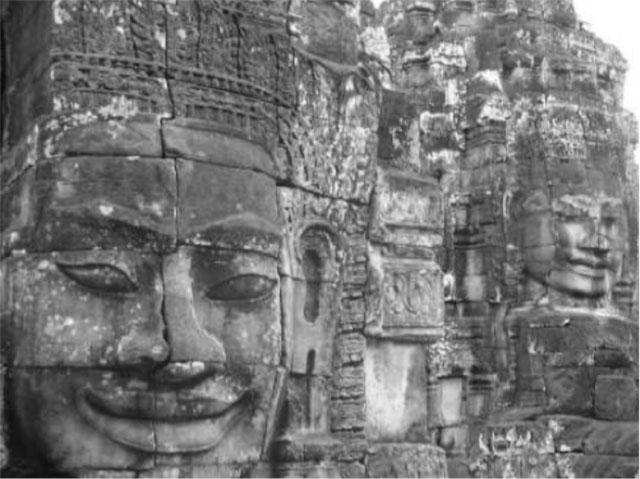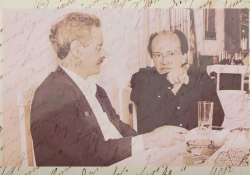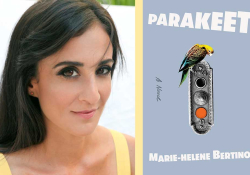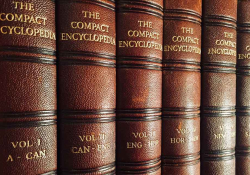Asian Traumatic Poetics
(part 2)

In the second installment of “Asian Traumatic Poetics” (to read part 1, click here), I will look at two more poems published in Cha that discuss and address uniquely Asian traumatic experiences: the painful realization that the home one has left behind is forever gone and the effects of the forced departure from one’s country.
Circumnavigation
The way we sat at dinner
over a dish of rank mussels
and talked about food,
one would have thought
we had always been hungry.
We recalled the conquest
of shellfish: bivalves, arthropods
deprived of calcite and scale,
of quivering jellyfish, sliced fresh
on a bed of pickles.
But when we came to the one
delicate variety of creature
trawled from the waters that lap
up against your hometown, its name
escaped you –
language, elusive, slipped
up between us like the sea,
all salt and somnolence,
the way I imagine Magellan
must have seen the tide rising
in the space before the spear hit home
and knew, but could not articulate
that the ocean is a seamless sphere,
binding one broken horizon to the next
under a sky that rarely ever
guides us back to where we began.
(Issue 7, Cha)
For the reader, there is perhaps a slight disconnect between the title of the poem and the opening stanza. “Circumnavigation” suggests themes of exploration and travel, which are not necessarily evident in the first lines of the poem. (Law develops these themes slowly throughout the piece; by the end, the meaning of her title becomes explicit.) Instead, the lines present a situation that is domestic and familiar. We see a group of people, perhaps a family, sitting down for a seafood meal: “The way we sat at dinner / over a dish of rank mussels / and talked about food, / one would have thought / we had always been hungry” (L1–L5).
There are a few points to ponder here. Like many gatherings, the discussion naturally focuses on the food being consumed as there is often a sense of anticipation at the beginning of a meal. Law evokes this sense of excitement as she says they “talked about food” as if they “had always been hungry.” The lines may also reveal something else about the family: maybe they are so enthusiastic about their feast because they had once experienced hunger and are now happy for their fortunate circumstances. Or perhaps, like many families, they latch onto the topic of food because they have so little else to say to one another. The stanza also hints at the themes that Law will develop more explicitly in the rest of the poem. The mussels suggest the ocean, which is a central image in the work and hints at the title “Circumnavigation.” The idea of circumnavigation is also perceptible in the meal itself—the conversation and dishes traveling around the circumference of the dinner table.
At the start of the next stanza, both the themes of seafood and circumnavigation are developed: “We recalled the conquest / of shellfish: bivalves, arthropods / deprived of calcite and scale” (L6–L8). As they eat, the group reminiscences about previous seafood meals, their “conquest” of “bivalves” (clams, mussels, scallops) and “arthropods” (crabs, shrimps, lobsters). The word “conquest” is particularly apposite as the eaters have broken down the defenses of the creatures, stripping them of their “calcite and scale.” The connection between “conquest” and “circumnavigation” is clear, and the stanza evokes the image of European explorers and colonists. The idea also indicates an environmental theme in the poem, specifically the overfishing and destruction of ocean life. This interpretation is also evident in the double meaning of “quivering jellyfish” (L9) in the next line: both in the sense of jiggly and in the sense of shaking from fear.
Their musings and recollections are dreamy and drowsy, full of “salt and somnolence”; memories and language, like the ocean, are fluid.
In the third stanza, the poem turns as their conversation hits a pause when the discussion comes to the topic of “one / delicate variety of creature” (L11–L12) from “your hometown / its name escaped you” (L14–15). The “you” being referred to is presumably a senior member of the group who has long ago left their hometown famous for a particular seafood delicacy. However, due to age and time the creature’s name has slipped from his/her memory. (Again we also see the possible environmental theme, as the “delicate” creature has been “trawled” into near extinction—not only its name but the creature itself has disappeared.) For the poet, the character’s inability to recall the animal’s name is the result of the “elusive” nature of words. The persona says that language “slipped / up between us like the sea, / all salt and somnolence” (L16–18). The nature of their conversation is compared to an ocean that rises and falls with the tide, both allowing and preventing conversation. Their musings and recollections are dreamy and drowsy, full of “salt and somnolence”; memories and language, like the ocean, are fluid.
But the ocean also has a permanence that links us to our own past. In the fifth stanza, the poem moves back in time to recall Ferdinand Magellan, the man who led the first voyage to circumnavigate the world. The stanza continues the thought from earlier in the poem. In the family’s conversation, the persona claims that language “slipped / up between us like the sea.” For the speaker, this happened in the same way “Magellan / must have seen the tide rising / in the space before the spear hit home” (L19–21). In both of these cases, the ocean is presented as a kind of barrier. The sea as elusive language rises between the family members, bringing a pause to their conversation and reminding them of a past to which they cannot return. For Magellan, the rising tide is a portent of his death that arrives just before he is hit by a spear thrown by Filipino natives. It is also a reminder that he will not be able to return home. This thought is developed in the last part of the poem, in which Law writes that Magellan “knew, but could not articulate // that the ocean is a seamless sphere, / binding one broken horizon to the next / under a sky that rarely ever / guides us back to where we began” (L22–25).
In these final lines, we see that the title “Circumnavigation” is perhaps ironic. Although the ocean itself is “a seamless sphere” that covers much of the surface of the world, those who travel by sea often find that they cannot navigate the stars and fate—here represented by the “sky”—and find themselves stuck only partway through their journey. The diner, when unable to recall the name of their hometown delicacy, realizes that having left home, one cannot return. Likewise Magellan, after traveling on the “seamless” ocean to the Philippines, now finds that the water is a rising wall that prevents his return. Even though some of his crew will manage to travel the circumference of the world, the explorer’s journey ends halfway. For the poet, then, the ocean may offer the promise of an around-the-world journey, but more often than not our trip proves to be one-way.
* * *
Siem Reap, Cambodia
by Greg Santos
Before stepping into a taxi
a young girl struggles to take the city with her:
Warm, sticky air bathing the street market,
comforting scent of fragrant rice,
pungent odor of dry fish,
raw flesh hung on butchers’ hooks,
squawking of chickens in rusty wire prisons,
crescendo of rickshaws, scooters, bicycles;
the city she will no longer call home.
As she speeds away, the city recedes into memory,
as does the rolling countryside,
once dotted by women tending to the paddies,
children splashing among water buffalo.
Now, echoes of distant missiles pierce her memories,
murders of crows dive into reddened fields.
The faces of Angkor watch sadly
as their city crumbles,
as another one of their children flees,
taking nothing with her but me,
gently growing inside.
(Issue 10, Cha)
Greg Santos’s poem “Siem Reap, Cambodia” opens with a close third-person description of a girl leaving her home city: “Before stepping into a taxi / a young girl struggles to take the city with her” (L1–2).[1] The word “struggles” reveals that the girl is reluctant to depart and is trying to capture as much of “the city she will no longer call home” (L9) as possible.
What the young girl is trying to take in is vividly described in the second stanza; it provides the reader with a portrayal of Siem Reap that works on many of our senses: “Warm, sticky air” (touch), “scent of fragrant rice,” “pungent odor of dry fish” (smell), “raw flesh hung on butchers’ hooks” (sight), “squawking of chickens,” “crescendo of rickshaws, scooters, bicycles” (hearing).
Yet there is no time for the girl to carefully catalog everything, and her memory of the city will ultimately be incomplete. Even as she “speeds away,” the city is already beginning to recede “into memory” (L10). The girl may already be realizing that we can only take snippets of our past with us, never the whole record. There is also a sense in this description of the city’s slipping into memory that, for the girl, one can never go back home.
There is also a sense in this description of the city’s slipping into memory that, for the girl, one can never go back home.
But it is not only her old life that is disappearing; the country as a whole is undergoing metamorphosis. As she travels through “the rolling countryside” (L11), we see that it is now empty, no longer “dotted by women tending to the paddies” (L11) or “children splashing among water buffalo” (L13). These previously common scenes are now a thing of the past. The lines pointedly suggest that like the young girl, the women and children too are also affected, possibly by the same forces that have driven her from the city.
What these forces are is revealed in the evocative phrases that come next: “echoes of distant missiles” (L14) and “murders of crows” that “dive into reddened fields” (L15). The image of crows diving into blood-soaked fields is particularly effective, as it echoes the motion and destruction of missiles landing. Although we are never explicitly told what these events are, one can safely assume that they are describing Cambodia’s recent troubled history, either the civil war or the period under the Khmer Rouge. In some sense, it does not matter. Historical forces act upon common people like the girl. No matter who is responsible for the missiles, the effect is the same: she must flee her home.
Next, the poem switches perspective slightly and we see that there are witnesses to the girl’s flight. The faces of Angkor “watch sadly” (L16) as “another one of their children flees” (L18). But these stony visages not only scrutinize the young girl, they also observe the wider events in action as they see “their city” crumble (L17)—“their city” here referring to both the ancient and slowly decaying city of Angkor (a Sanskrit word that itself means “city’) and the more quickly deteriorating Siem Reap. There is a nice contrast of historic times here: the long history of the ruins from a once-great empire and the rapid disintegration of modern Cambodia.
Yet it is the final lines that reveal the true witness to the events described: the speaker of the poem is in fact the young girl’s unborn child. In other words, the poem has been told from the perspective of a fetus, a very close third-person narrator indeed. It is only when the reader realizes the speaker’s true identity that the subtle foreshadowing which has been occurring throughout the poem becomes evident. For example, in the second stanza, note the description of Siem Reap as “warm,” “sticky,” “comforting,” “pungent” and “raw,” all of which suggest a womb. And as the stanza progresses towards “squawking,” then a “crescendo,” it is almost as if the young mother herself is being born, forever ejected from the womb of Siem Reap. Likewise, the women and children who have disappeared from the paddies in the third stanza suggest that it is not only the young mother who is fleeing but also her child.
With the shocking revelation that the speaker is an unborn child, the reader might be left with a sense that both the mother and child will survive. The image of a baby is almost always a metaphor for new beginnings and new lives. And if not read closely, the poem may seem as if it is being narrated from a point in the future looking back. However, this is an illusion as the fetus is in fact using the present tense to tell us current events instead of recalling the story from a safe distance. The mother and child may survive, but they may equally end up being killed directly after the poem ends.
However, I am inclined toward the happy ending. The words “gently growing” in the final line do provide a sense of a new start. Or maybe I just want to hope that even as another one of Angkor’s children flees, it is to a better place.
* * *
In these two posts, I have discussed four poems that explore Asian traumatic experiences. Apart from the final poem, which addresses the effects of the appalling policies and actions of the Khmer Rouge, they do not directly deal with the horrific political and social conflicts that have characterized much of recent Asian history. Instead, taken as a whole, I feel they provide a snapshot of the variety of personal traumas—both small and large—that make up the lived Asian experience.
Footnotes:
[1] Greg Santos wrote about his poem on his personal blog: “It tells the story of a young Cambodian girl in the midst of fleeing from the horrors of the Killing Fields and the Khmer Rouge regime. I was adopted when I was a baby and this poem was my way of imagining what this time could have been like for my birth mother. Thanks to the love of that young girl, my parents were able to have a son, and I have a Mom and Dad, and they have made me the person I am today.”






